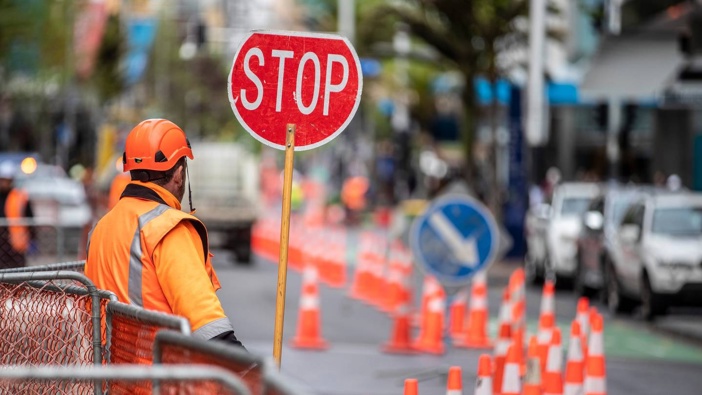Well, whoofty! Where do we start with transport after the huge policy drop yesterday? Fifteen roads of national significance have been given the go ahead, no ifs, no buts. Despite the eye-watering expense, the Prime Minister says they are essential to building a productive economy. How are we going to pay for it? Good question. Because basically it's just picking a number and multiplying it by the time the roads are finished. A number of different options have been proposed and some are more concrete than others, Transport Minister Simeon Brown outlined some of them with Mike Hosking this morning.
“We're not increasing fuel taxes until 2027 and by that stage there will not have been an increase in fuel excise for six years. So, the reality is funding is needed to pay for the infrastructure that New Zealanders need to be able to get around quickly and safely. And so we're not increasing fuel taxes till 2027. The New Zealand Transport Agency, their role is to develop what's called the national and transport program that will outline when these roads will be built, how they'll be funded in terms of specifics for each particular project, but with our expectations very clear, they need to be looking at a range of funding and financing tools, whether it’s PPP’s, value capture, build-own-operate transfers, and my expectation is they’ll be getting all that straightaway.“
Yes, so many different ways of doing it because there's a lot to pay for.
Along with the building of the 15 roads of national significance, we've also got a half billion-dollar pothole prevention fund (that will be popular) and the establishment of a Road Efficiency Group, the scrapping of Road to Zero, replacing it with targets for drink and drug testing, $4.4 billion in public transport spending.
So, Simeon Brown mentioned a few of the ways that the transport budget will be funded. We've got the fuel tax hikes in 2027. The rego’s going up, that's not a big deal in terms of extra expense, an extra $25 and then another $25. We've got an increase in fines being looked at as well, some fines could double if you're not wearing your safety belt, (hopefully we'll see that for the use of cell phones while driving as well). We've got the value capture taxes.
If you're living in an area where public transport suddenly opens up land, then you will have to pay more for it because you're land in theory becomes more desirable. We've got reducing costs by fast tracking the roads through the consent process. We've got congestion charges. You know Uncle Tom Cobbley and all really when we look at it.
We've got so much that we can, and perhaps should be doing.
Now of course, the cycling coalition have said it's not fair and this is ridiculous and other countries around the world are creating more cycleways. We do need cycleways as part of a cohesive transport plan. But cycles aren't going to carry the bulk of goods that we need to get to our ports for export and distribute around the country as imports. So, we need roads. The cycle lobby has to accept, surely in their heart of hearts, late at night as they're lying there in bed, planning their wet weather gear as they cycle into work the next day, they have to know that for their cycles to get here, they have to be brought in from another country and then distributed around the country. You can't put 100 cycles on top of a cyclist. You need a truck to do it. So, we need the roads.
I did think Simeon Brown didn't quite understand public transport when he said, well, public transport users have to pay their way too. At the moment we're trying to get people into public transport where they can ease up the congestion on the roads that we have now. The roads will take some time to build and as generally happens, when you build more roads, more cars fill it, so we need a public transport option as well.
What's fair?
What's not?
I think congestion charges make sense. Value added I’m in two minds on. I know a couple of our younger colleagues at work who bought their first homes because there was good public transport access. A developer built a series of little townhouses in one of the outer suburbs of Auckland, and a couple of younger colleagues bought them, their first home with Kiwi Saver and they chose specifically because there was good public transport links into the city. So, it was attractive to them to have public transport. Is it fair enough, then, that those who sell the land that is going to be used for the housing, have to pay a bit extra? Tolls. Nobody minds paying tolls surely, do they? Because whenever you put in a toll road, there must be an alternative. Cutting the red tape for consenting, I think everybody would agree to that, wouldn't they?
So, the roads have to be paid for, there is no Covid Fund to dip into. Without a productive economy, we can't afford anything.
So, what comes first in your mind? Have the Government got their priorities right?
Take your Radio, Podcasts and Music with you










